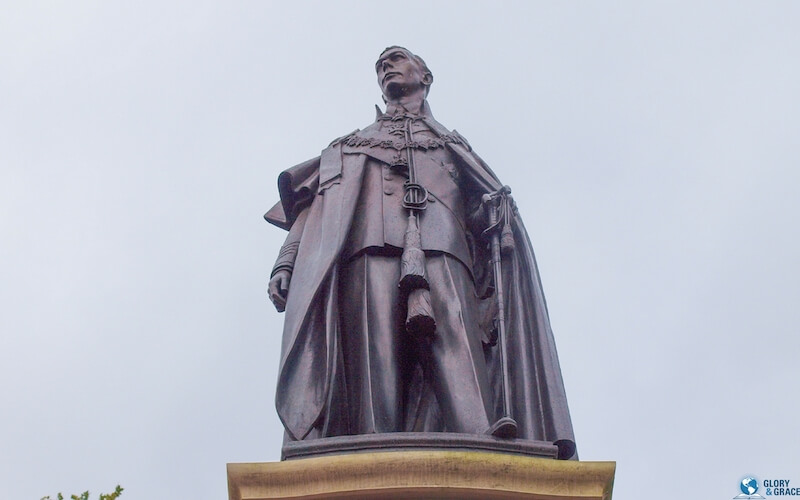Theophilus in the Bible: Who was he? What did he do?
Theophilus is the Person to whom Luke addresses the book of Luke and the Acts of the Apostles. In fact, he is the only person mentioned in the scriptures to whom writings were specifically dedicated to(O’Toole, 1992). However, there are many questions regarding the identity of this individual. Was he a real person or the name was just a title or an epithet? Was he a Christian in the first place? We will briefly review the answers to some of these questions.

The Biblical accounts of Theophilus
There are just two verses that specifically mention the individual identified as Theophilus by Luke. These verses are Luke 1:3 and Acts 1:1.
It seemed good to me also, having had perfect understanding of all things from the very first, to write unto thee in order, most excellent Theophilus, (Lk. 1:3 KJV)
The former treatise have I made, O Theophilus, of all that Jesus began both to do and teach, (Acts 1:1 KJV)
Luke literally dedicated his two books to this individual.
The Name
The proper name Theophilus was common among both Jews and Gentiles about the time Luke wrote his two books. The name means “lover of God” or “friend of God”.
Who was Theophilus?
The truth is that besides what Luke mentioned in the above two verses in Acts 1:1 and Luke 1:3, we really do not know anything else about the identity of this individual. Speculations are many regarding who he was. One key question that has been raised is whether the name Theophilus was a real name or it was a title. Origen (AD 185-254) was the first to suggest that “Theophilus” might be a symbolic term rather than a proper name that Luke was addressing. One of the reasons for this is that the name means “lover of God” and could possibly refer to the audience of believers who loved God. Also, Christians in that era could use pseudonyms to protect whoever is being addressed from potential persecution by the Romans. However, this possibility is very unlikely because Luke clearly addresses this individual as “most excellent”. This was an address that was used specifically for officials or those who are of a high social rank in society (Acts 23:26, 24:2).
It is more likely that Theophilus was a real person that Luke was addressing. The difficulty is that there is just not enough information in the Bible or extra-biblical sources to clearly identify who this individual is. By the way, was Theophilus a Christian?
Theophilus: Christian or not?
This is also another point of disagreement among Christian scholars. Was he merely curious to know about Jesus or was he an actual believer? Luke mentions that in Luke 1:4 that Theophilus had already been taught or instructed in the Gospel story.
That thou mightest know the certainty of those things, wherein thou hast been instructed. (Lk. 1:4 KJV)
When one considers, his apparent close relationship with Luke, eagerness to know more about Jesus and the fact that He has already been taught the things of the Gospel, the likelihood of Theophilius already being a follower of Jesus far supersedes the contrary view. I think Theophilus was already a Christian at the time of Luke’s writing to him.
What position did he occupy?
The address that Luke utilizes “most excellent” in Luke 1 suggest that this individual occupied some high-ranking status in society (compare Acts 23:26; 24:3; 26:25). He was either a prominent Roman official or a rich social figure. He might have been a Roman magistrate, governor or a procurator. Again, all these are mere speculations based on how the words used to describe him were used in his days. In this regard, the Hermeneia commentators state that “ the term often appears in the dedications of literary works, the dedicatees of which did not necessarily occupy an official position” (Bovon, F., & Koester, H. (2002)
Where did Theophilus live?
Where did Theophilus live? The Hermeneia commentators state that “ questionable notice in the Pseudo-Clementines shows that Theophilus resided in Antioch” ( Bovon& Koester, 2002). Someone suggested that Theophilus might have resided in Antioch. Again, these are mere speculations without any solid basis.
Did Theophilus help Publish Luke’s books?
An interesting consideration is whether Theophilus helped Luke in any way in the Publishing of his two books, especially given that he dedicated his two books to this individual. He might have facilitated the distribution of Luke’s books, contributed financially to the publishing costs but we have no evidence to think that He was a Publisher or a Literary agent for Luke! (R.F O’Tool,1992)
What do we know about him?
If we attempt to put the pieces together, these are the following things we know about Theophilus
- He was a real Person
- He was a believer in Jesus Christ
- He was hungry to learn about Jesus. Though He had been instructed already, he was eager to learn more.
- He was likely an official or one of high social status
He did not say a single word in all the narratives that included him!
REFERENCES
Bovon, F., & Koester, H. (2002). Luke 1: a commentary on the Gospel of Luke 1:1–9:50 (p. 23). Minneapolis, MN: Fortress Press.
Miller, J. E. (2016). Theophilus. In J. D. Barry, D. Bomar, D. R. Brown, R. Klippenstein, D. Mangum, C. Sinclair Wolcott, … W. Widder (Eds.), The Lexham Bible Dictionary. Bellingham, WA: Lexham Press.
Morris, L. (1988). Luke: an introduction and commentary (Vol. 3, p. 83). Downers Grove, IL: InterVarsity Press.
O’Toole, R. F. (1992). Theophilus (Person). In D. N. Freedman (Ed.), The Anchor Yale Bible Dictionary (Vol. 6, p. 511). New York: Doubleday.
Free Mini E-book: From Spiritual Dryness to Flourishing








IN OTHER WORDS, NOBODY KNOWS, AND THATS OK/
You got it, Helena! It is OK not to know everything and acknowledging this simple fact is of utmost importance!
time will tell. wait and see.
It seems that Luke wanted to influence, grow, and even further solidify, erase any doubts, in the walk of Theophilus for the gospel of Jesus Christ. He cared about Theophilus’s faith, so Theo might be forever changed, that he details it all out in Luke and Acts. Then perhaps, Theophilus, could take this gospel to others around him. Possibly Romans. Two specific dedications to him seems really, really, important to me. Seems like they were possibly friends. Luke cared a lot for him. Then to me… Luke wants me to really get what he writes about in Luke and Acts. He wants me to know that everything that he wrote about is reliable, trustworthy, and life changing. The words of Luke, Acts, and all of the Bible are the very words of God, speaking to me, to us. And the words are powerful. Transforming. It seems that Luke is saying to me, absorb all that I am saying to you, all that I am writing, all the detail and accounts and share it with others.
Yes! Interesting ideas.
The Theophilus family was a very famous family in the time of Jesus .The name means ‘a son of God ‘. They were very rich and they supplied the Romans with a lot of source material including food from their numerous farms . They owned land all over Israel and as far as Antioch where he apparently was a Governor on behalf of the Romans at one time.. When he died his more famous son took over the business He was the famous Lazarus of Bethany who Jesus raised from the dead . Lazarus had two sisters Martha and Mary . Mary of Bethany is also the same Mary Magalene . Her correct name should be Mary of Theophilus as that was her fathers name . My source is’ The Poem of the Man God ‘ by Maria Valtorta .
Thank you for visiting and for the contributions. These are very detailed and bold facts about Theophilus and even more fascinating is these facts are based on “The Poem of the Man God” by Maria Valtorta published in 1956 based on her reported visions of Jesus Christ. I understand some believe her visions are of supernatural origin and so claimed them to be the truth. However, we do not believe in such visions here. Our writings are exclusively based on facts related to the 66 books of the standard Bible and we caution against visions and revelations that claim to be from God and have doctrinal implications or claiming to add details to what God has revealed already in the Bible.
BUT DOESN’T 66 SEND UP SIGNS OF INTEREST?
WHY 66.
WHO DECIDED.
SHOULD WE BE OK WITH THAT?
soundly reasoned and well written with simple language and clear formatting
Thank you Joel!